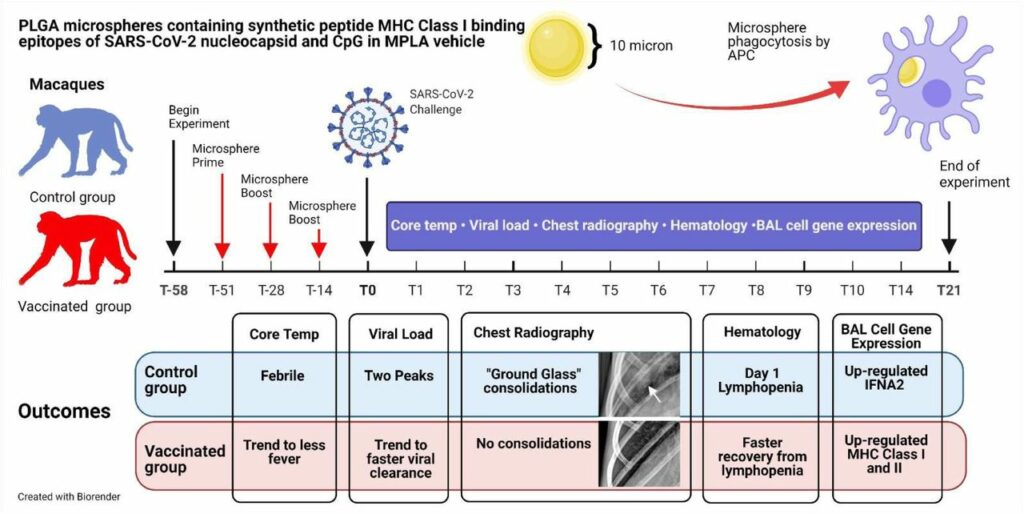
Our FLOVID-20 team released a new research preprint showing that Rhesus Monkeys vaccinated with FLOVID-20 were free of pneumonia-like infiltrates characteristic of SARS-CoV-2 (COVID-19) infection and presented with lower viral loads relative to controls. It is submitted for peer review and publication.
Abstract
Background Persistent transmission of severe acute respiratory syndrome coronavirus 2 (SARS-CoV-2) has given rise to a COVID-19 pandemic. Several vaccines, evoking protective spike antibody responses, conceived in 2020, are being deployed in mass public health vaccination programs. Recent data suggests, however, that as sequence variation in the spike genome accumulates, some vaccines may lose efficacy.
Methods Using a macaque model of SARS-CoV-2 infection, we tested the efficacy of a peptide-based vaccine targeting MHC Class I epitopes on the SARS-CoV-2 nucleocapsid protein. We administered biodegradable microspheres with synthetic peptides and adjuvants to rhesus macaques. Unvaccinated control and vaccinated macaques were challenged with 1 x 108 TCID50 units of SARS-CoV-2, followed by assessment of clinical symptoms, viral load, chest radiographs, sampling of peripheral blood and bronchoalveolar lavage (BAL) fluid for downstream analysis.
Results Vaccinated animals were free of pneumonia-like infiltrates characteristic of SARS-CoV-2 infection and presented with lower viral loads relative to controls. Gene expression in cells collected from BAL samples of vaccinated macaques revealed a unique signature associated with enhanced development of adaptive immune responses relative to control macaques.
Conclusions We demonstrate that a room temperature stable peptide vaccine based on known immunogenic HLA Class I bound CTL epitopes from the nucleocapsid protein can provide protection against SARS-CoV-2 infection in non-human primates.
